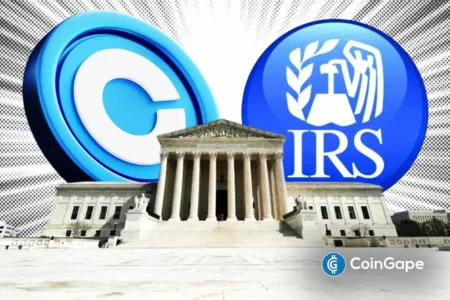The Ongoing Debate on Stablecoins: Regulation and Interest Proposals
In recent discussions surrounding the regulation of stablecoins, Representative French Hill has brought to light the contentious proposal allowing consumers to earn interest on their stablecoin holdings. During a briefing on April 1, Hill highlighted that there remains no consensus among lawmakers regarding this issue. As U.S. Congress edges closer to enacting new legislation that could reshape the landscape for stablecoins, the reluctance to embrace interest payment models has sparked considerable debate among stakeholders in the financial and cryptocurrency sectors.
Lack of Consensus on Interest Payment for Stablecoins
Rep. French Hill, who represents Arkansas, underscored the significant divide among legislators regarding allowing interest on stablecoins. His comments indicated that, despite some public advocacy for this change, the lack of agreement extends across both the House and Senate. Hill noted, “I hear the point of view, but I don’t think that there’s consensus among the parties or the houses on having a dollar-backed payment stablecoin pay interest to the holder of that stablecoin.” These remarks reflect the complexities of navigating financial regulations amid rapidly evolving digital asset frameworks.
Introduction to the STABLE Act
Central to these discussions is the “STABLE Act” (H.R. 2392), a proposed regulation designed to provide clear frameworks for stablecoin issuers and outline their use in financial transactions. The legislation does not currently support the provision for consumers to earn interest on their stablecoin holdings. This legislative effort seeks to delineate the operational standards for stablecoins in the U.S., yet it faces criticism for potentially stifling the advancements and benefits that stablecoins could offer.
Recent Developments in the STABLE Act
On April 2, 2025, a new version of the STABLE Act, entitled Amendment in the Nature of a Substitute (ANS), was published. This updated document incorporates amendments and will be crucial for the upcoming markup session scheduled for April 3. While advocates in the industry are urging for a more innovative approach that includes options for interest-bearing stablecoins, the current form of the STABLE Act does not accommodate these changes. Critics fear that this conservative stance could harm the growth trajectory of the stablecoin market and limit consumer access to financial opportunities.
Advocacy From Industry Leaders
The topic of allowing interest-bearing stablecoins has also resonated with industry leaders and cryptocurrency advocates. Brian Armstrong, the CEO of Coinbase, has taken a vocal stance on this issue, arguing that consumers should be able to earn interest on stablecoin holdings, akin to the returns offered by traditional savings accounts. Armstrong asserts that such a measure has the potential to democratize access to financial gains and expand opportunities for the average consumer. He states, “Consumers deserve a bigger piece of the pie,” emphasizing the broader economic benefits that could result from establishing a framework for interest-bearing stablecoins.
The Future of Stablecoins in the U.S.
As discussions on stablecoin regulation continue, the potential for U.S. consumers to earn interest remains a pivotal issue. The ongoing debate encompasses not just legislative considerations but also the pulse of industry sentiments and consumer expectations. Lawmakers are faced with the challenge of balancing regulatory compliance while fostering innovation within the cryptocurrency space. The implications of this legislation could dictate the future trajectory of stablecoins and their accessibility to mainstream consumers, ultimately shaping the landscape of digital finance for years to come.
In summary, the dialogue surrounding stablecoins is evolving, with critical insights emerging from legislators and industry advocates alike. As the regulatory framework takes shape, stakeholders must remain engaged to ensure that regulations reflect the potential benefits of stablecoins, including interest payments that could empower consumers and stimulate broader economic participation.
















